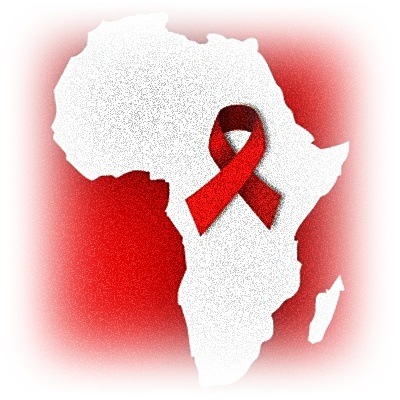AIDS
AIDS (acquired immunodeficiency syndrome) is a fatal disorder affecting millions of people around the world. A leading cause of death among adults in sub-Saharan Africa, AIDS threatens to overwhelm many African nations and disrupt their social and economic development.
AIDS is caused by HIV, a virus that attacks and destroys the body's immune system, making the infected person susceptible to disease. The virus is transmitted primarily through sexual intercourse, transfusions of contaminated blood, and sharing of needles by drug users. Mothers can pass HIV to infants during birth and while breast-feeding them. Each year nearly 500,000 African children are born with HIV.
Figures released by the United Nations in 2000 showed that nearly 14 million Africans had died of AIDS-related illnesses, and 25.3 million were infected with HIV. However, the impact of AIDS is not the same throughout the continent. Although it surfaced first in East Africa, southern Africa is now the hardest hit area. The percentage of people infected with HIV there ranged from about 20 percent in SOUTH AFRICA to about 36 percent in BOTSWANA. The rate of infection was lower in East and West Africa and much lower in North Africa—though the disease is gaining ground in some of those areas as well.

In the early years of the AIDS epidemic, the disease struck mainly in African cities. In recent years, however, the rate of infection in rural areas has been rising dramatically. One reason is the increased movement of people between urban and rural areas. Many rural residents migrate to cities to work, become infected, and then spread the disease when they visit their villages. Rates of infection have been highest in areas along long-distance trucking routes.
A number of other explanations have been advanced for the rapid spread of HIV in sub-Saharan Africa. For one thing, Africans tend to begin sexual activity at a fairly young age and often have sex outside marriage. Lack of education has limited the acceptance of safe sex practices. Experts also note that individuals who have other sexually transmitted diseases (STDs) are more likely to contract HIV. In many parts of Africa, people with STDs may not receive proper treatment because of a shortage of health care services and the high cost of medications produced by Western drug companies.
AIDS poses a tremendous danger to the future of African nations. By reducing the number of productive workers, the disease will create severe labor shortages in industries and agriculture. Schools and hospitals will be understaffed. Large numbers of children will lose their parents to AIDS. Already, the disease has left more than 13 million African children orphaned, and it is estimated that this number will rise to 40 million by 2010. As a result, vast numbers of children may grow up in poverty with few opportunities and little hope.
At present, the prospects for controlling HIV and AIDS in Africa appear dim. Many countries lack the funds for massive education and health care programs. In some nations, officials have failed to acknowledge the scope of the problem. Although some treatments can prolong the lives of people with AIDS, the cost is beyond the reach of most Africans. Researchers are currently working on a vaccine to prevent HIV infection, but such a remedy may not be available for many years. In the meantime, the best hope is to educate people about the disease and make treatment more widely available. Western drug companies have been criticized for the high prices they charge for drugs used to treat HIV and AIDS. (See also Diseases, Family, Gender Roles and Sexuality, Health Care, United Nations in Africa.)